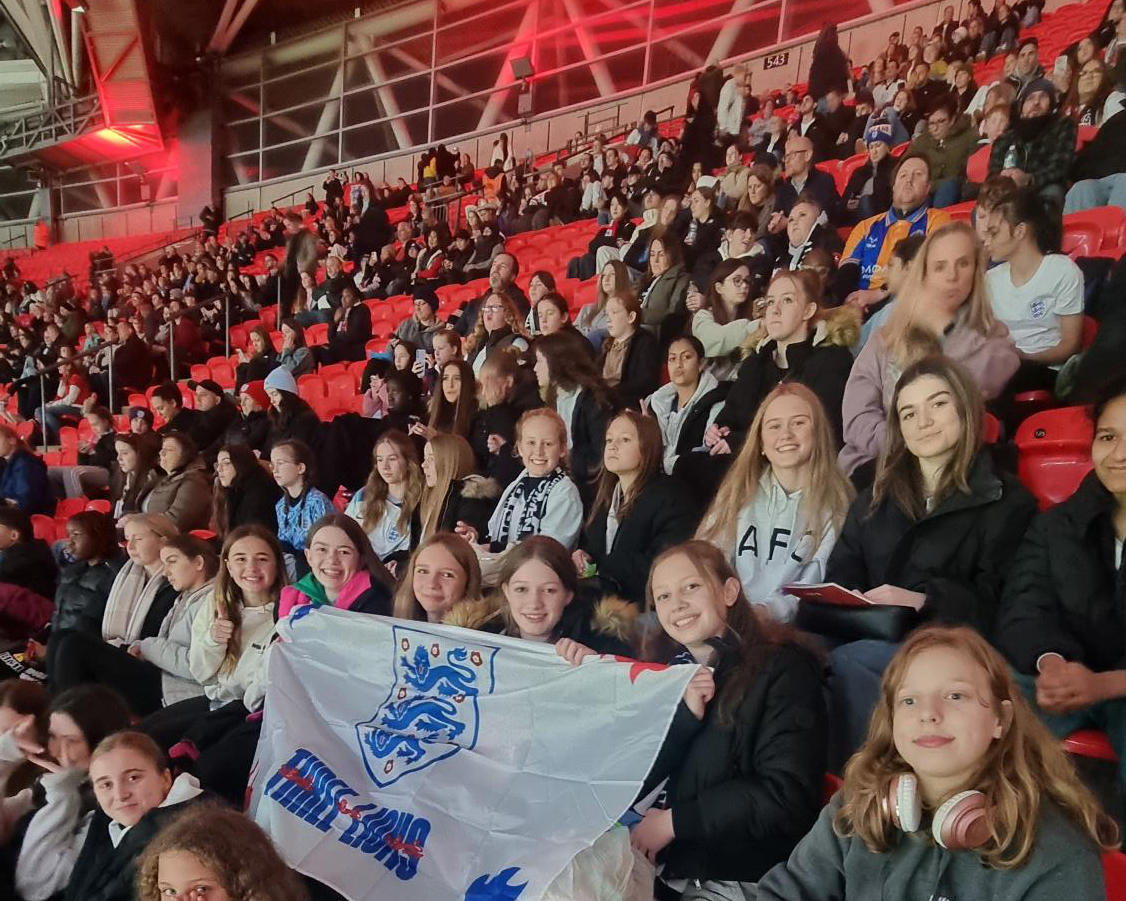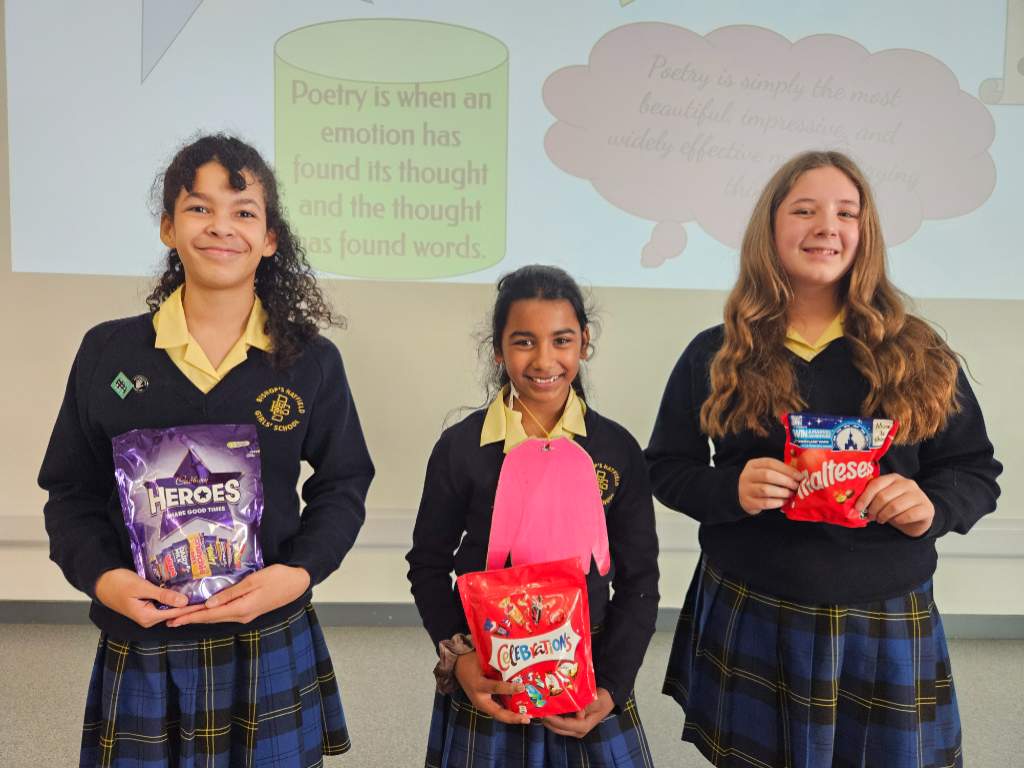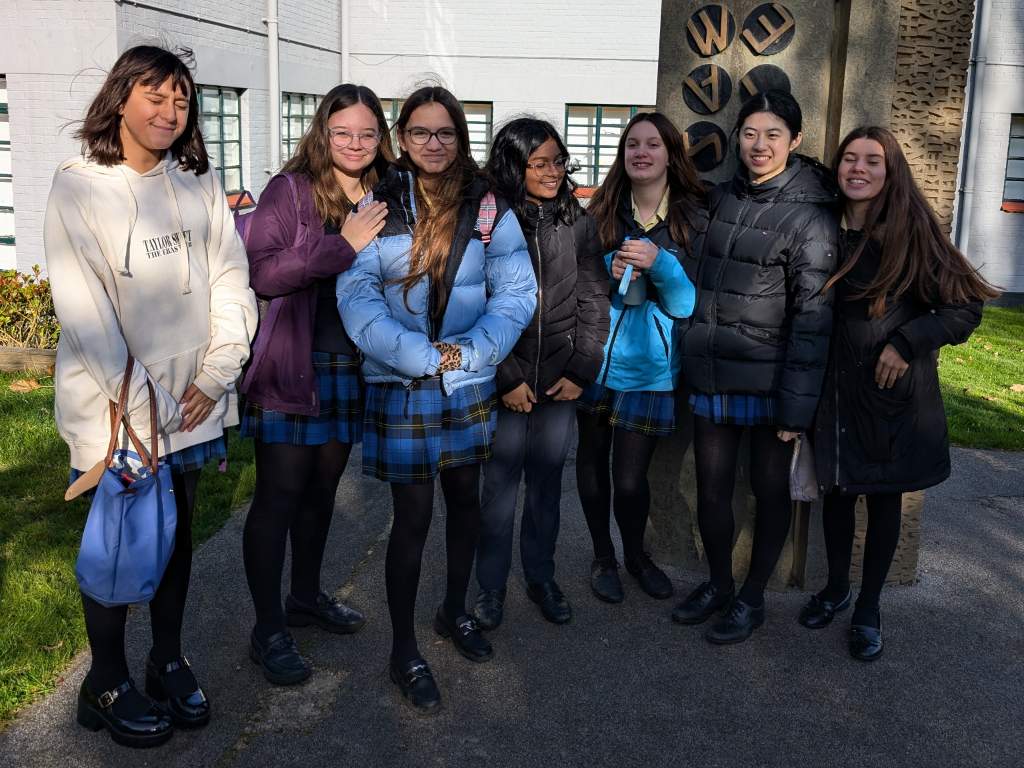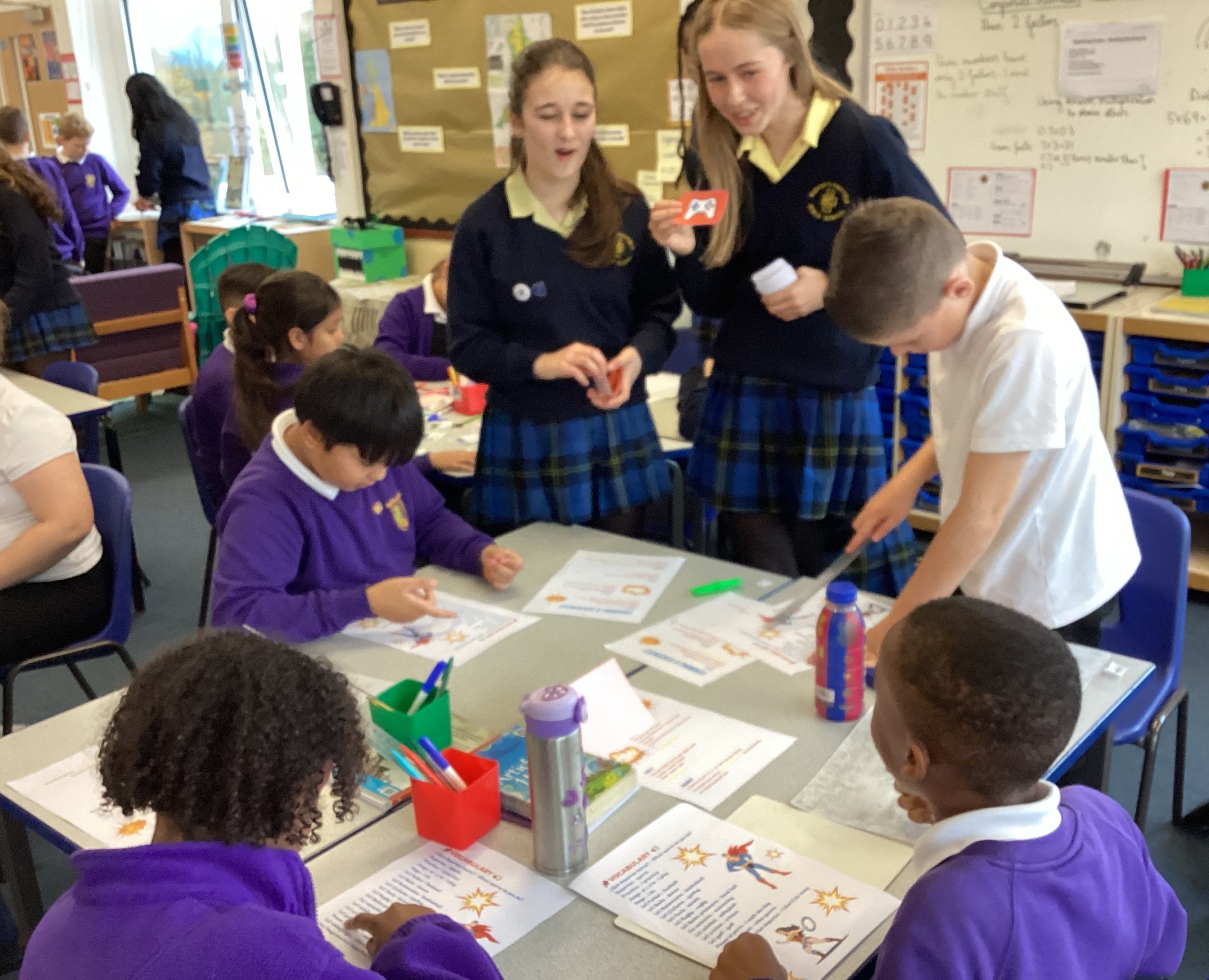Bishop’s celebrates their first-ever Social Science Week with a range of activities designed to understand and appreciate the subjects of Sociology, Politics, Business and Law
We are thrilled to share the success of our first-ever Social Science Week, which took place from the 4th to the 8th of November 2024. This themed week marked a significant milestone for our school, as it was the first time our social sciences subjects were celebrated in a comprehensive manner. Social science at Bishop’s consists of A Level Sociology, A Level Business, A Level Law & A Level Politics.
Throughout the week, students from all year groups participated in a range of activities designed to enhance their understanding and appreciation of social sciences. For years 7-11 this was also an opportunity for them to see their future subject choices in our sixth form.
Daily Form Time Activities: Each day of Social Science Week brought new and exciting challenges for our students. They engaged in a variety of form time activities, including:
- Politics Quiz: Students tested their knowledge of UK politics, diving into the history of our political system and current affairs.
- Law Quiz: This activity had students guessing age restrictions on various items and activities, followed by thought-provoking debates on whether these restrictions are fair.
- Business Activity: Students learned to differentiate between buzzwords and actual business terminology and the context behind how these words are used or their meaning.
- Sociology Activity: Students discussed the social problems they believe to be the biggest problem society currently faces, how this affects communities and what they can do to help.
House competitions:
- Parliament-Themed Bake Off: The parliament-themed bake off was a delightful and delicious highlight of the week. Students from all houses demonstrated their enthusiasm for politics through their incredible baking skills. This competition not only highlighted our students’ culinary talents but also their deep interest and understanding of political processes. The level of detail and thought put into each cake was truly impressive, making the bake off an excellent example of how our students can combine their academic interests with creative expression.
- Design a Better Future: The “Design a Better Future” competition challenged students to develop a community improvement project, integrating key concepts from our four A-level social science subjects: Politics, Law, Business, and Sociology.
Both competitions were a testament to the creativity, dedication, and collaborative spirit of our students.
Guest Speakers:
On Friday morning, our sixth form students had the privilege of hearing from a professional working in the HMP Prison and Probation Service. This speaker shared their experiences and insights into the diverse career opportunities available within the prison services, including upskilling programs and the possibility of pursuing a free PhD in forensic psychology or becoming the head of inclusion and diversity within a prison. Students learned about the realities and rewards of these careers and engaged in an enlightening Q&A session about prisons in England and Wales.
Our second guest speaker was from a restorative justice charity. Students were introduced to the origins of restorative justice, tracing its roots back to traditional forms of conflict resolution used by indigenous cultures. The speaker explained how restorative justice focuses on repairing the harm caused by criminal behaviour through a process that involves both victims and perpetrators. This method emphasises accountability, making amends, and facilitating a dialogue between the affected parties to foster understanding and healing.
The talk also highlighted how restorative justice principles are applied within prison settings to address conflicts among inmates. This approach helps to create a more peaceful environment and encourages inmates to take responsibility for their actions, fostering personal growth and rehabilitation.
A fascinating part of the session was the discussion on the neuroscience behind empathy. Students learned how restorative justice practices can influence brain formation, enhancing the capacity for empathy in both victims and perpetrators.
The speaker shared compelling success stories where restorative justice had profoundly transformed the lives of those involved, illustrating its effectiveness and positive outcomes. However, the talk also addressed the challenges and downsides of the job, providing a balanced perspective on the field. This included the emotional toll on practitioners and the complexities of facilitating restorative justice in certain cases.
Our students posed insightful questions during the Q&A session. One poignant question was whether the speaker believed that people could truly change. The response was affirmative, backed by evidence from their experiences, highlighting the potential for personal transformation through restorative justice.
Overall, this talk was an eye-opening experience for our sixth form students, broadening their understanding of careers, justice, empathy, and the human capacity for change.
Virtual University Talks: Our sixth formers also participated in online talks hosted by universities across the UK as part of the wider Festival of Social Science month. These talks covered cutting-edge topics such as “AI in Modern Policing” and “Digilantes”—a new term for individuals who combat crime online.
“The ‘AI in modern policing’ webinar covered a range of issues and debates in regards to the usefulness and useability of AI in modern police practices. The speakers explored how AI improves policing through providing police with new means of predicting crime, and identifying and prosecuting offenders. As well as this, they also discussed how AI in modern policing can be significantly flawed as all forms of AI are influenced to some degree (some more than other) by biased data due to the source material used by AI to identify patterns or generate responses being human. Due to my personal interest in the criminal justice system and my eventual goal of working within it, this webinar was very useful to me through providing me with a path of thought I hadn’t considered before and widening my knowledge of how policing is progressing in our ever changing world to better navigate the effects of globalisation and the media on crime. In addition to this, the webinar has contributed to my studies into Sociology and Ethics as both enter into the debate of AI’s impact on the criminal justice system.” – Charlotte Y13
Social Science Week 2024 has been a journey of discovery and engagement for our students. It has provided them with valuable insights into the social sciences and opened their eyes to the many career paths available in this field. We are immensely proud of the enthusiasm and participation shown by all year groups and look forward to building on this success in future events.
Thank you to Miss Ferguson and everyone who contributed to making Social Science Week a success!













